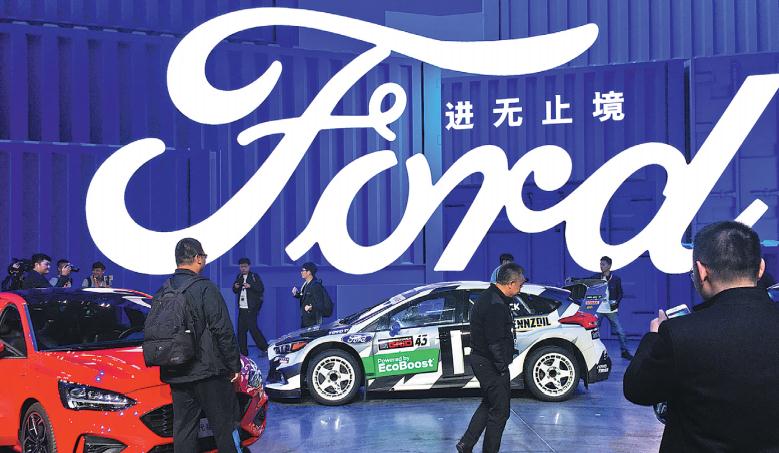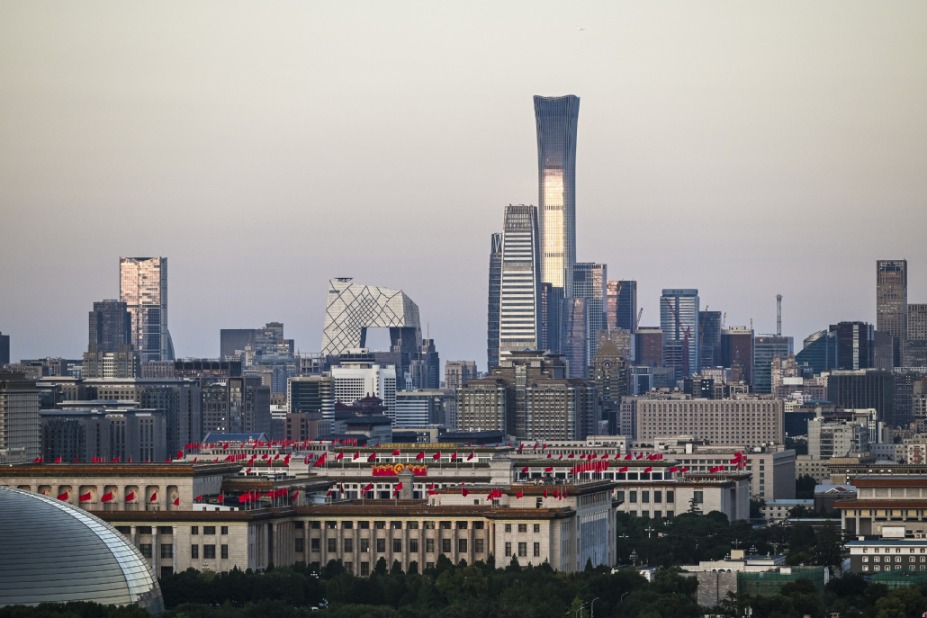VW, Ford team up for new future


Car giants make deal to share knowledge and resources of their commercial vehicles
Volkswagen AG and Ford Motor Company are partnering to develop pickups and vans and explore cooperation in autonomous driving and electric cars, possibly in Europe and China, to share costs and enhance competitiveness in the fast-changing automotive industry.
The two car giants announced their alliance last Tuesday at the Detroit auto show held in the United States, but they have ruled out the possibility of a merger or cross-holding of equities, like the Renault-Nissan-Mitsubishi alliance.
The alliance will be governed by a joint committee headed by Ford CEO Jim Hackett and Volkswagen CEO Herbert Diess and is composed of senior executives from both companies.
Ford said it will engineer and build medium-sized pickups for both companies, starting from 2022, which will yield improved annual pretax operating results starting in 2023.
The US carmaker said it will also engineer and build larger commercial vans for European customers, while Volkswagen will develop and build a city van.
Through the alliance, the two will share development costs and leverage their respective manufacturing capacity, but maintain distinct brand characteristics, said the two in a joint statement.
"Over time, this alliance will help both companies create value and meet the needs of our customers and society," Hackett said.
"It will not only drive significant efficiencies and help both companies improve their fitness, but also give us the opportunity to collaborate on shaping the next era of mobility."
The two companies' collective light commercial vehicle sales in 2018 totaled around 1.2 million units globally, and they said demand will grow further in the next five years.
The jointly developed vehicles will primarily be for Europe, South America and South Africa, according to Bloomberg. But it reported Diess as saying he was "very open" to potentially sharing Volkswagen's electric vehicle technology called MEB in Europe and China.
Analysts say the two's cooperation in China is unlikely to come before partnerships in other parts of the world have proven successful, because the country, as the world's largest car market, has been crucial for both carmakers.
The German group has been the best-selling carmaker in China, where it delivered more than 4 million vehicles last year under its Volkswagen brand as well as Audi and Skoda.
The carmaker has set a goal to lead electro-mobility in the country, where it is investing 4 billion euros ($4.5 billion) this year alone, expecting to sell 1.5 million new energy cars annually by 2025.
In an interview earlier this month with China Daily, Diess said Volkswagen's future lies with China, expecting the country to replace Europe as the source of its technology.
Ford is seeing its market share shrinking in China, but it has elevated the position of the country up to that of North America.
It is in the process of introducing 50 models into the country by 2025.
Both companies have set up joint ventures dedicated to electric vehicles as well.
Ford and Volkswagen have also signed a memorandum of understanding to investigate collaboration on autonomous vehicles, mobility services and electric vehicles, each of them meaning huge investment.
Quoting sources familiar with the matter, Reuters said the framework of such a deal would include Volkswagen investing in Ford's autonomous vehicle operations, including its Argo AI business.
"Carmakers around the globe are investing heavily to align their portfolios to future needs and accelerate their innovation cycles. In such an environment, it just makes sense to share investment," said Diess in a conference call last Tuesday.
Volkswagen has allocated a record 44 billion euros in spending over the next five years to stay competitive in the industry full of new changes, according to Bloomberg.
Ford has also started an $11 billion restructuring and earmarked a combined $15 billion in investment toward electrified and driverless cars in coming years.
Slowdowns in the world's largest auto markets-China and the United States-h(huán)ave ratcheted up the pressure on both to cut costs.
"Automakers aren't just competing with each other anymore. They're under intense pressure from well-funded tech companies," Jessica Caldwell, executive director of industry analysis at Edmunds, was quoted by Reuters as saying.
- VW to recall over 357,000 vehicles for short circuit risk
- German auto giants negotiate crucial White House meeting
- Volkswagen buys stake in digital specialist diconium
- FAW-VW meets challenge of China's auto market with dynamic models, rich product lineup
- New emission tests brake EU car sales in September




































